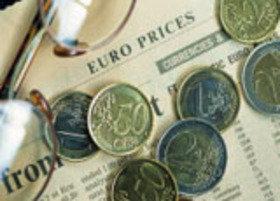

Own income
The introduction of an EU tax is envisaged by unanimity in the Lisbon Treaty. By unanimity, they can change for qualified majority.
While the Commission strongly pushes for its introduction, an EU tax is fiercely resisted by many member states. Instead, the Commission plans to harmonise the tax base for company taxes as a first step.
The EU is financed by, so-called, "own income". This consists of revenue from customs duties, agricultural levies, 1% of the VAT-base in each member country and a contribution from each country related to its GNP.
The own resources ceiling is set at 1,27% of the GNP of the enlarged EU.
The different types of income of the EU are called "own resources"
since they legally belong to the EU.
Custom
duties are collected by the member
states on behalf of the EU. The EU pays the member states 10% of the sum
collected to cover the cost of collection. The incomes are decided by the member
states in the Council. The European Parliament has no say.
Own income is regulated by Article 311 TFEU by unanimity.
Links
See also Budget.